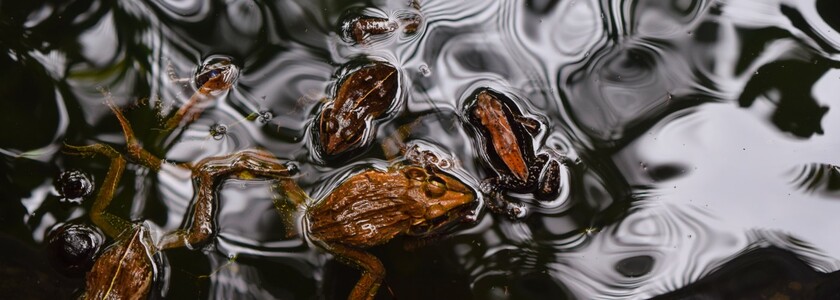

Frogs are cute little amphibians that leap and hop to get around and use their jumping to catch food. New evidence has revealed that with temperatures warming, making for a hot and drier climate, that this would impact the leaps of many frogs and amphibians. A new study published in the journal Proceedings of the Royal Society B, suggests that some frogs and toads, as they become dehydrated, they will not be able to jump as far.
The study focused on three different frog species: the coastal tailed frog, the spadefoot toad, and the Pacific tree frog. The researchers studied the frogs' body temperature and degree of dehydration as they were set in tanks with controlled conditions. The results showed "Across the board, all three leapers were initially able to maintain their mobility but there was a drastic drop off when they lost around 20 percent of their body weight from dehydration. At this point, all three species began hopping a shorter distance compared to when they were suitably wet. The critical point for being incapable of hopping altogether was at a 30 percent loss for the two frogs and 45 percent loss for the desert toad. The negative impact on jumping distance was even more pronounced when dehydrated frogs and toads were kept in warmer environments, with control conditions ranging from 15 to 30 degrees centigrade (59 to 86 Fahrenheit)."
With the warming climate, other cold blooded species like insects and reptiles could also be affected. Even though they do not hop, their need to move and be fast is needed for hunting and to avoid prey. Study author Dan Greenberg of Simon Fraser University, Canada said “When we look at water loss and take it in concert with temperature, it really changes how we think about the way climate change is going to reorganize the ecological systems on Earth in the coming centuries.”